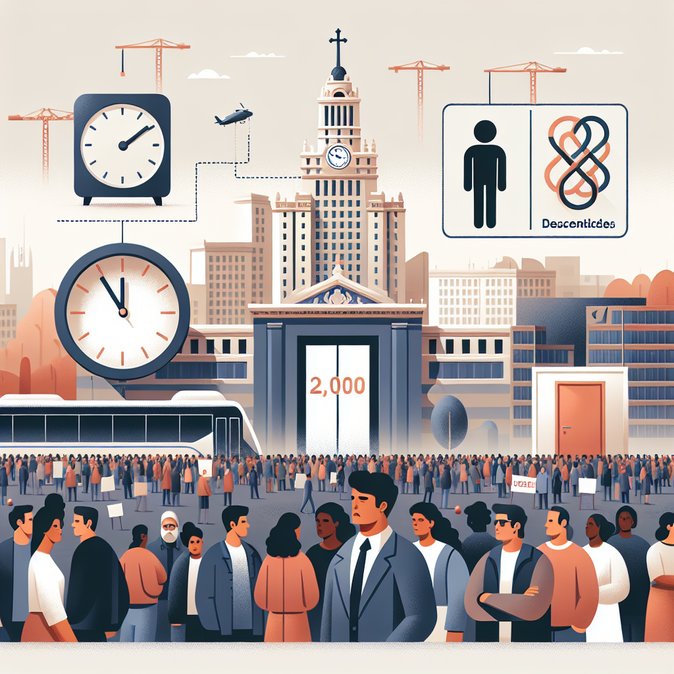
More than 2,000 people packed the pavement outside Spain’s Ministry of Inclusion, Social Security and Migration on Saturday, 22 November 2025, in the largest immigration-reform rally Madrid has seen since the pandemic. Organised by well-known immigration lawyer Pau Ventura, the peaceful demonstration channelled months of frustration over lengthy backlogs, limited appointment slots (cita previa) and inconsistent criteria that leave foreign residents unable to renew work permits or register new employment contracts.
Spain’s immigration offices are still wrestling with a record 580,000 pending applications, according to the ministry’s latest transparency release. Many attendees told journalists they have waited more than eight months for a simple renewal – well beyond the 90-day statutory limit – forcing them into legal limbo. Employers also feel the pinch: companies cannot add foreign workers to payrolls without a valid TIE card, delaying projects and exposing firms to compliance risks.
![Madrid Protesters Demand Faster Residency Decisions & Fair Treatment for Immigrants]()
Speakers called for three immediate measures: (1) an emergency hiring plan to double case-handling staff, (2) automatic 12-month extensions for files older than 90 days, and (3) a national switch to fully digital filing so applicants in all provinces have equal access. Several MPs from the governing coalition appeared briefly, signalling that residency reform is gaining political traction ahead of next spring’s municipal elections.
For global mobility managers the protest is a clear warning sign. Assignments that relied on “standard” six-week processing are now stretching to a quarter or even half a year, inflating relocation budgets and complicating start dates. HR teams are advised to pad timelines, maintain duplicate dossiers in case extra documents are requested and consider the new Arraigo and digital-nomad routes as alternative paths to legal status.
Ventura ended the rally by announcing the creation of a permanent observatory to track file-processing times and publish monthly scorecards per province. Whether the government responds with concrete reforms will determine if Spain remains an attractive landing spot for talent in 2026 and beyond.
Spain’s immigration offices are still wrestling with a record 580,000 pending applications, according to the ministry’s latest transparency release. Many attendees told journalists they have waited more than eight months for a simple renewal – well beyond the 90-day statutory limit – forcing them into legal limbo. Employers also feel the pinch: companies cannot add foreign workers to payrolls without a valid TIE card, delaying projects and exposing firms to compliance risks.

Speakers called for three immediate measures: (1) an emergency hiring plan to double case-handling staff, (2) automatic 12-month extensions for files older than 90 days, and (3) a national switch to fully digital filing so applicants in all provinces have equal access. Several MPs from the governing coalition appeared briefly, signalling that residency reform is gaining political traction ahead of next spring’s municipal elections.
For global mobility managers the protest is a clear warning sign. Assignments that relied on “standard” six-week processing are now stretching to a quarter or even half a year, inflating relocation budgets and complicating start dates. HR teams are advised to pad timelines, maintain duplicate dossiers in case extra documents are requested and consider the new Arraigo and digital-nomad routes as alternative paths to legal status.
Ventura ended the rally by announcing the creation of a permanent observatory to track file-processing times and publish monthly scorecards per province. Whether the government responds with concrete reforms will determine if Spain remains an attractive landing spot for talent in 2026 and beyond.


